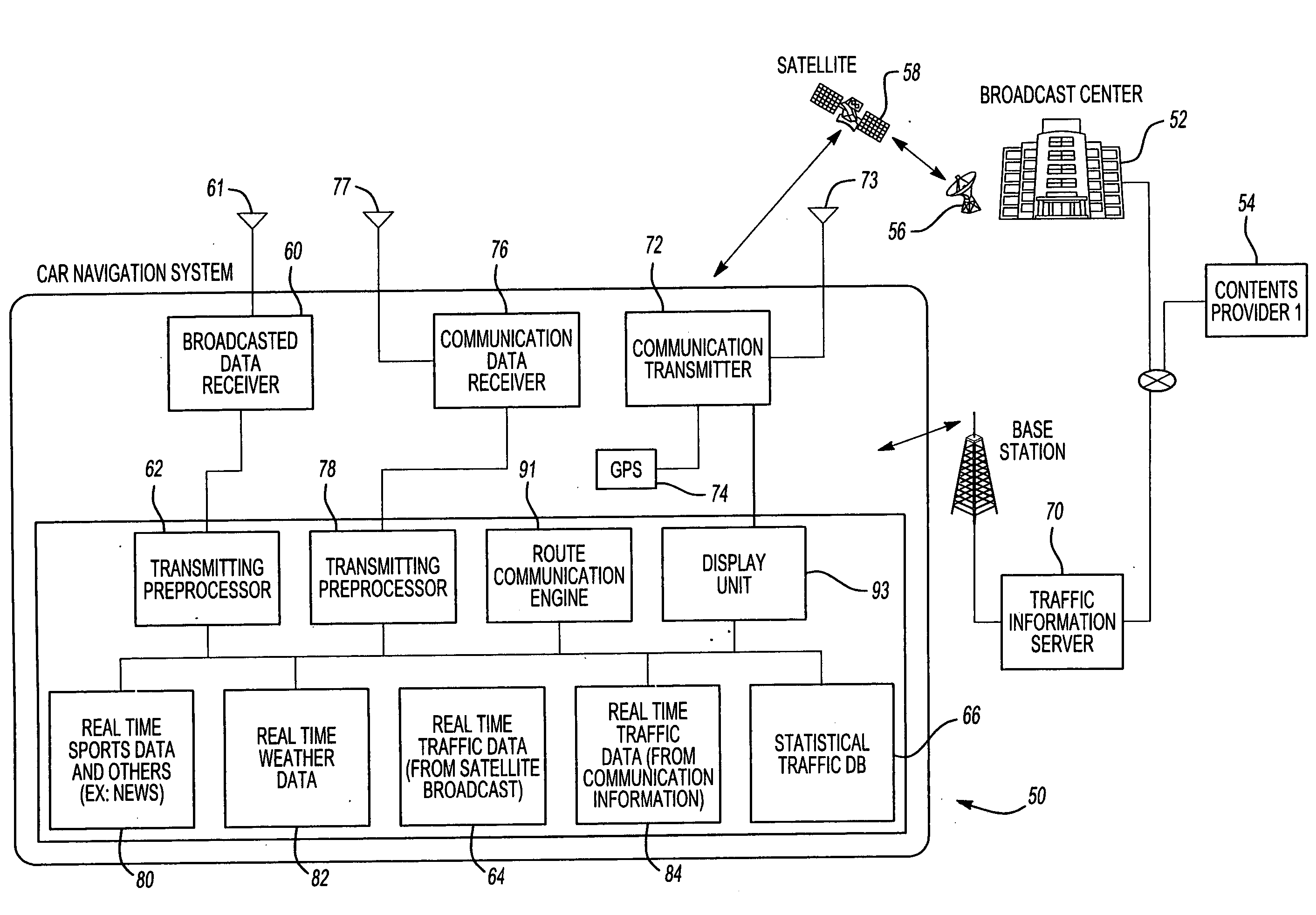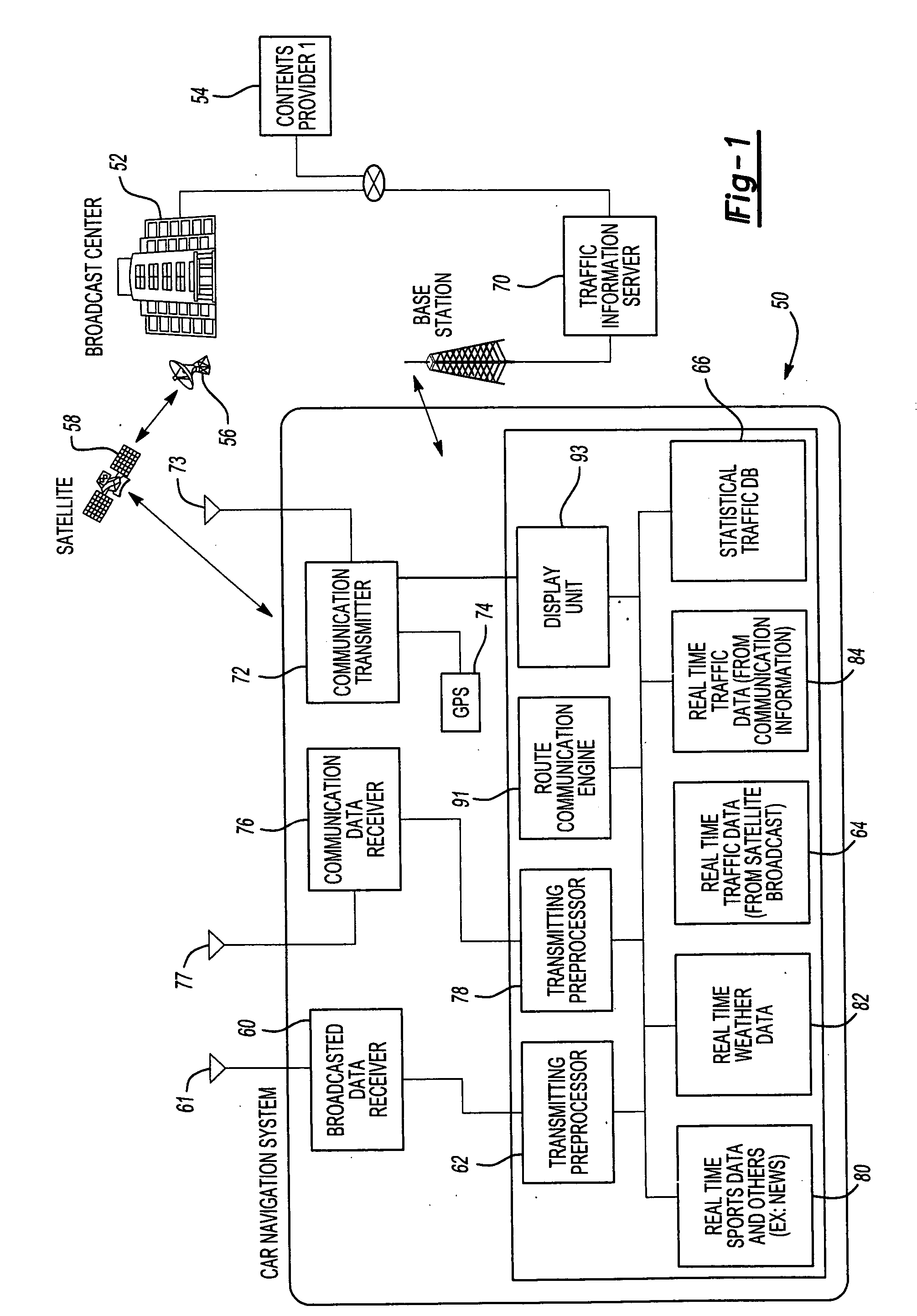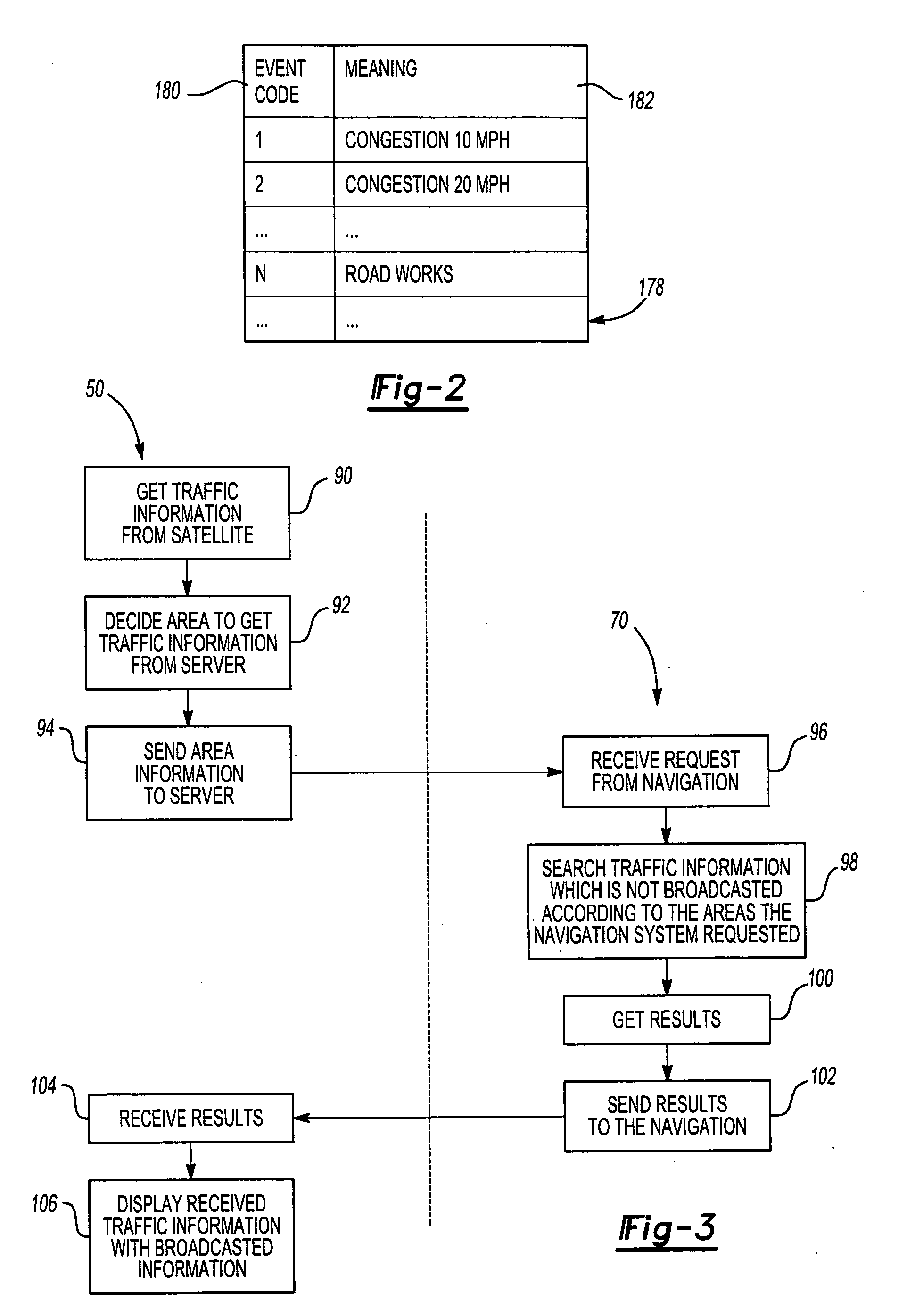Apparatus and method for processing and displaying traffic information in an automotive navigation system
- Summary
- Abstract
- Description
- Claims
- Application Information
AI Technical Summary
Benefits of technology
Problems solved by technology
Method used
Image
Examples
Embodiment Construction
[0047] With reference first to FIG. 1, a block diagrammatic view of a preferred embodiment of a car navigation system 50 is shown for use with a central station 52 which collects traffic data across a geographical area, such as the United States, from a plurality of traffic content providers 54, such as traffic flow sensors. Other data collecting devices and sources can include traffic cameras, traffic information collected by police or highway departments, website sentry collected information, speed sensors located in cars and transmitted to a central server, speed calculations made from the car position, as well as any other source indicative of traffic flow conditions.
[0048] The central station 52 then collates the inputted data from the sensors 54 and transmits via a transmitting antenna 56 to a satellite 58. The satellite 58 then retransmits the collated data back to the earth where it is received by a data receiver 60 of the navigation system 50.
[0049] Since the central stat...
PUM
 Login to View More
Login to View More Abstract
Description
Claims
Application Information
 Login to View More
Login to View More - R&D
- Intellectual Property
- Life Sciences
- Materials
- Tech Scout
- Unparalleled Data Quality
- Higher Quality Content
- 60% Fewer Hallucinations
Browse by: Latest US Patents, China's latest patents, Technical Efficacy Thesaurus, Application Domain, Technology Topic, Popular Technical Reports.
© 2025 PatSnap. All rights reserved.Legal|Privacy policy|Modern Slavery Act Transparency Statement|Sitemap|About US| Contact US: help@patsnap.com



